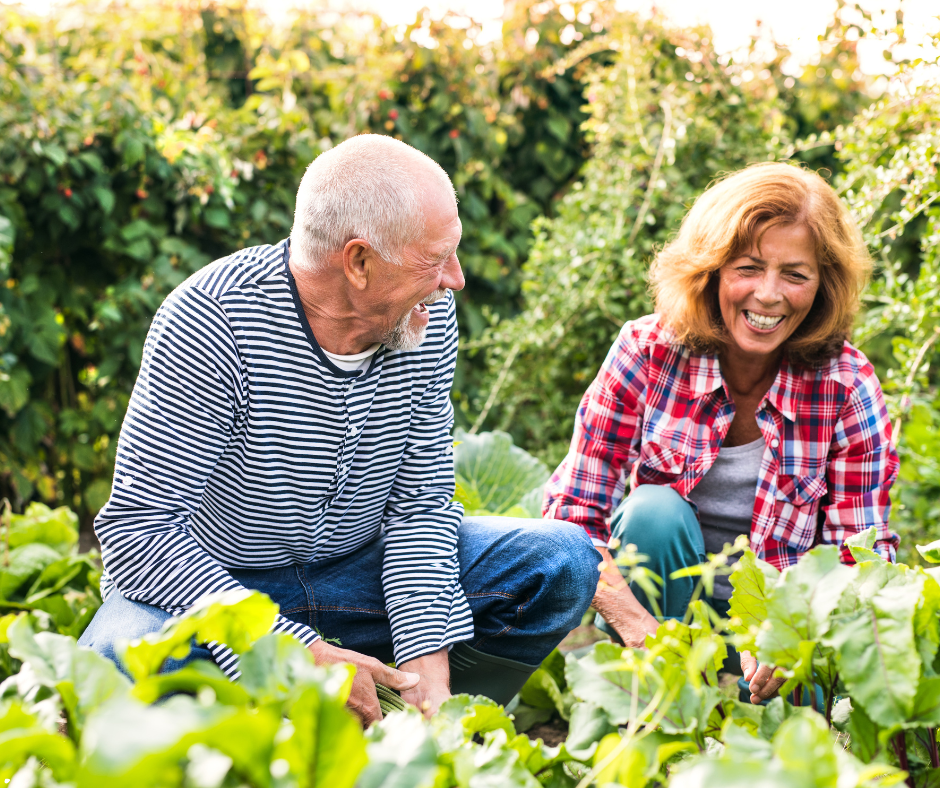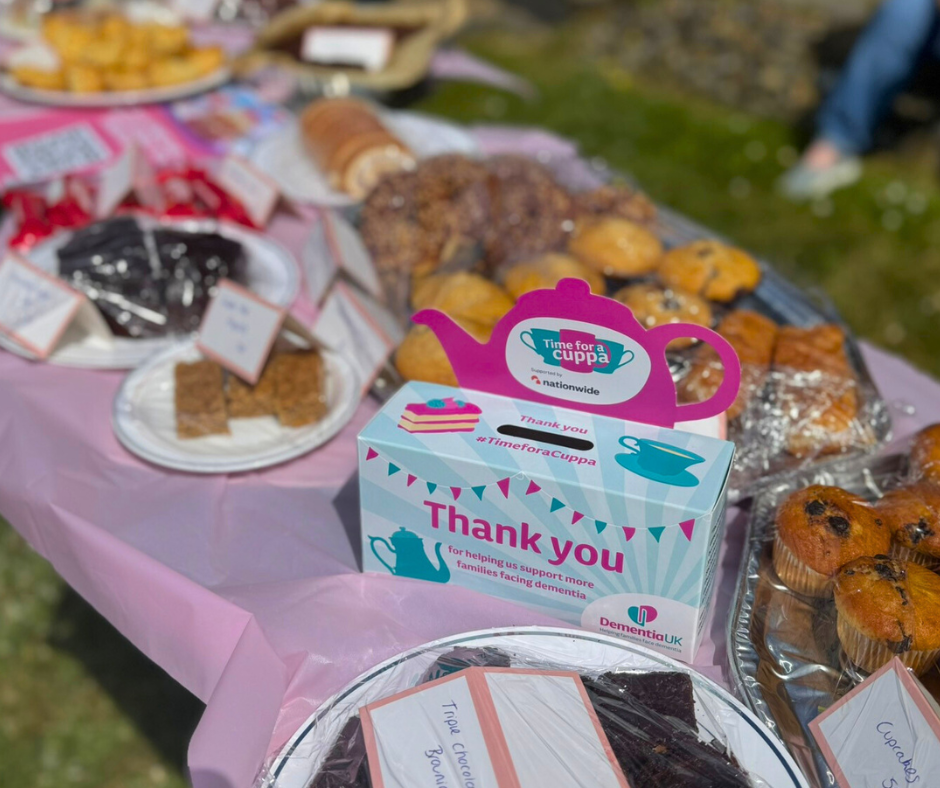
Gardening is a lovely activity that offers many benefits for people of all ages, especially older adults. Gardening is a great way to improve both physical and mental health. Here’s how gardening can be a wonderful activity for older people.
It is a gentle form of exercise that helps older adults stay active. Tasks like digging, planting, and watering plants involve different movements. This can improve strength, flexibility, and coordination. Here are some specific benefits:
Better Mobility and Flexibility: Regular gardening activities help keep joints flexible and mobile. Which reduces the risk of conditions like arthritis.
Heart Health: Light physical work can improve heart health and reduce the risk of heart disease.
Muscle Strength: Lifting pots, and using tools help build and maintain muscle strength.
Bone Health: Weight-bearing activities like digging and lifting strengthen bones and help prevent osteoporosis.
It is not only good for the body but also for the mind. It gives a sense of purpose and achievement. Which is especially important for older adults. Here’s how gardening supports mental well-being:
Reduces Stress: Being in nature and gardening reduces stress and promotes relaxation. The repetitive tasks and focus required in gardening have a calming effect.
Fights Depression and Anxiety: Caring for plants and watching them grow can boost mood and reduce feelings of depression and anxiety. Sunlight exposure also increases serotonin levels, which helps regulate mood.
Keeps the Mind Active: Gardening involves planning, problem-solving, and learning. Which keep the brain active and engaged. It’s a great way to maintain cognitive functions. It can also delay the onset of dementia and other cognitive impairments.
Encourages Social Interaction: Community gardens or gardening groups offer chances for social interaction. Which reduces feelings of loneliness and isolation. Sharing gardening experiences and tips can create meaningful connections with others.
For those who grow their own fruits and vegetables, gardening can lead to better nutrition. Fresh, home-grown produce is often more nutritious and tastier than shop-bought options. Gardening encourages healthier eating habits and provides a sense of pride in growing one’s own food.
Gardening helps older people feel more connected to nature. This connection can enhance their appreciation for the environment and contribute to a sense of peace. Being outdoors also increases exposure to natural light, which helps regulate sleep patterns and maintain a healthy body clock.
To make sure that gardening remains a safe and enjoyable activity, here are some tips for older adults:
Use Raised Beds: Raised garden beds reduce the need for bending and kneeling. Making gardening more accessible.
Choose Ergonomic Tools: Special gardening tools with easy-to-grip handles reduce strain on the hands and joints.
Stay Hydrated: Drink plenty of water. Especially when gardening in warm weather.
Protect Your Skin: Wear a hat, gloves, and sunscreen. To protect against sunburn and skin damage.
Pace Yourself: Take regular breaks to avoid overexertion and listen to your body.
Additionally, the beauty of gardening is that it can be adapted to suit your personal needs and space. Moreover, you don’t need a large garden to enjoy its benefits. Even small spaces like a window box or a few pots on a balcony can become a thriving garden. Here are some ideas to help you get started:
Window Boxes: Ideal for growing herbs, small flowers, and vegetables. Window boxes are easy to maintain and add a touch of nature to your home.
Container Gardens: Perfect for balconies, or any small outdoor space. Containers can hold a variety of plants. From flowers to vegetables, and can be moved around as needed.
Raised Beds: These are great for those with limited mobility. As they reduce the need to bend and kneel. Raised beds can be customised to any height and are excellent for growing vegetables, flowers, and herbs.
Community Gardens: These shared spaces provide an opportunity to grow your own plants. While also meeting new people and being part of a community
At Fuchsia Homecare, we strive to provide the services you need. Therefore, if you’d like to discuss how our Care Professionals can assist with care, home help, and gardening, please contact your friendly local office.






2 Wharfedale Road, Ipswich, Suffolk, IP1 4JP
Tel: 01473 233797
On Call: 07340939102
Email: [email protected]
Opening Times
Monday – Friday – 8:30 – 17:00
Monday to Friday – 17:00 – 8:30 -Emergency Only Contact
Saturday – Sunday -Emergency Only Contact
13-17 Margett St, Cottenham, Cambridge, CB24 8QY
Tel: 01954 252486
On Call: 07366395930
Email: [email protected]
Opening Times
Monday – Friday – 8:30 – 17:00
Monday to Friday – 17:00 – 8:30 -Emergency Only Contact
Saturday – Sunday -Emergency Only Contact
Gainsborough Business Centre, 6 Challenge Way, Colchester, Essex, CO1 2LY
Tel: 01206 822491
On Call: 07585544871
Email: [email protected]
Opening Times
Monday – Friday – 8:30 – 17:00
Monday to Friday – 17:00 – 8:30 -Emergency Only Contact
Saturday – Sunday -Emergency Only Contact
Yarmouth Business Park, Suffolk Rd, Great Yarmouth, NR31 0LN
Tel: 01493738488
On Call: 07443145811
Email: [email protected]
Opening Times
Monday – Friday – 8:30 – 17:00
Monday to Friday – 17:00 – 8:30 -Emergency Only Contact
Saturday – Sunday -Emergency Only Contact
Unit 5, Beech Avenue Business Park, Taverham, Norfolk, NR8 6HW
Tel: 01603 542949
On Call: 07459826426
Email: [email protected]
Opening Times
Monday – Friday – 8:30 – 17:00
Monday to Friday – 17:00 – 8:30 -Emergency Only Contact
Saturday – Sunday -Emergency Only Contact